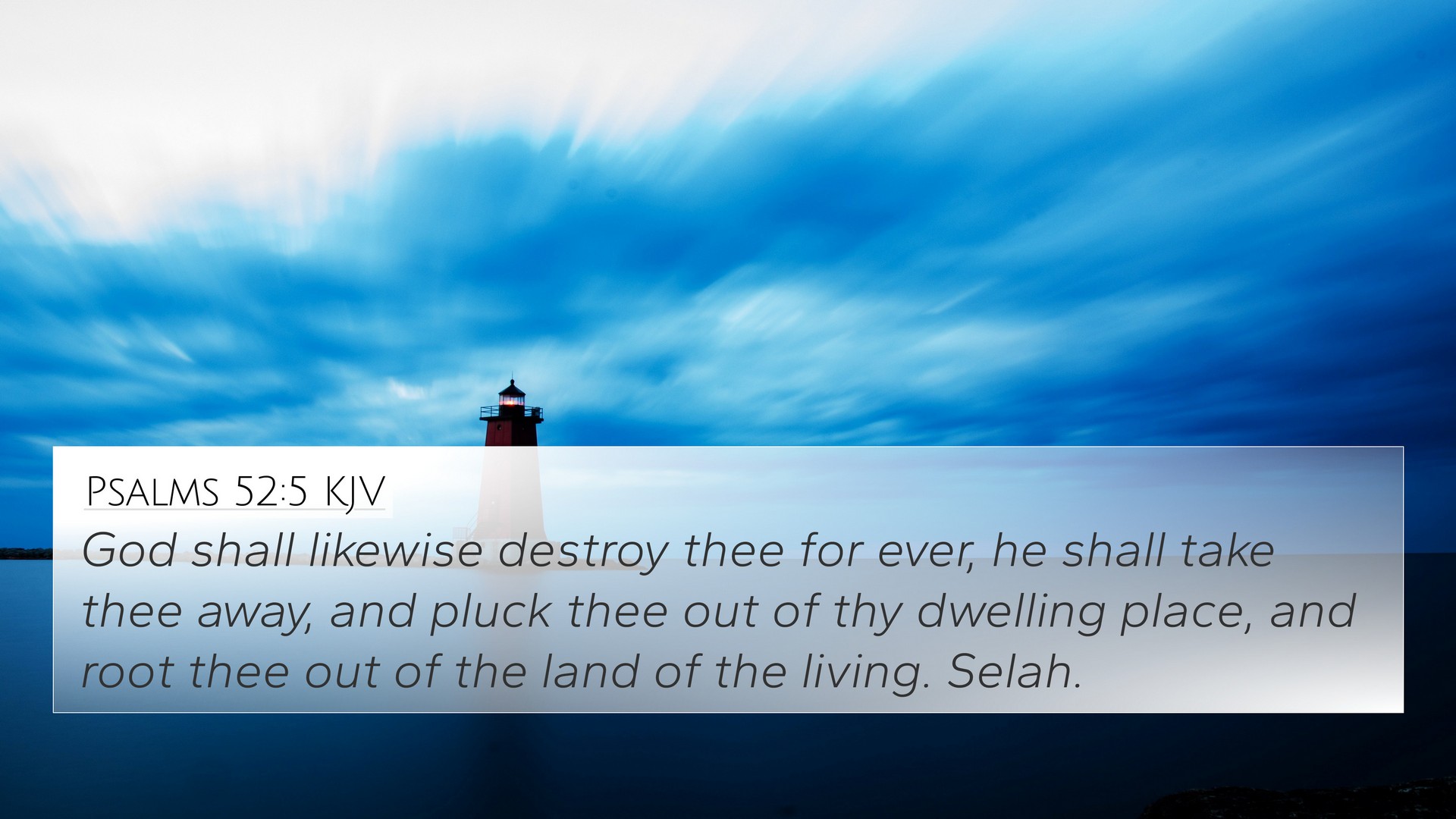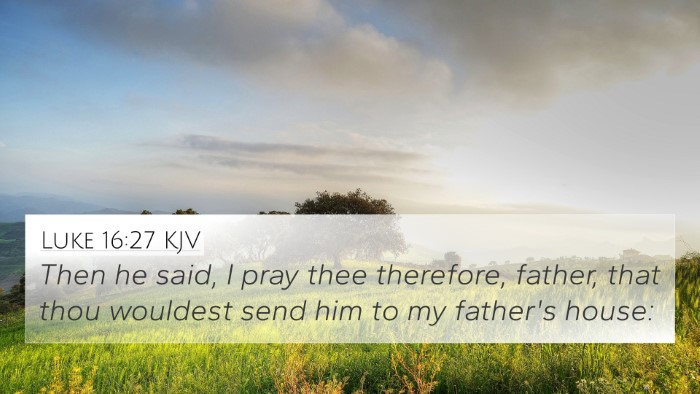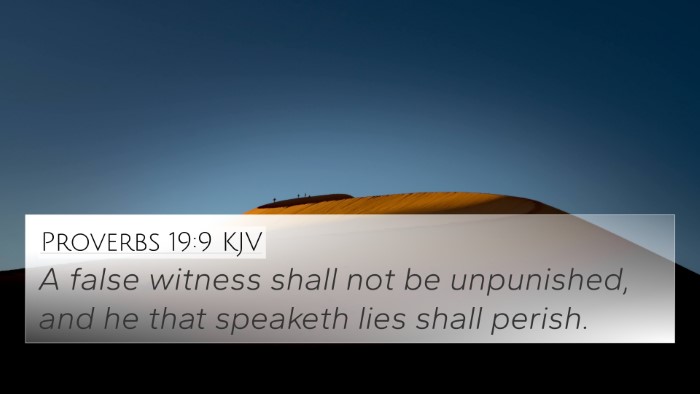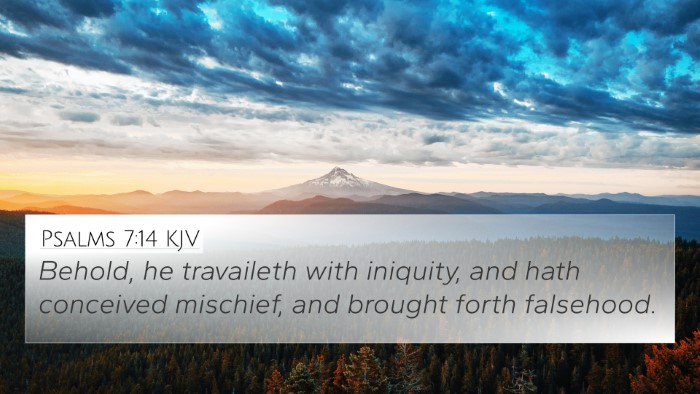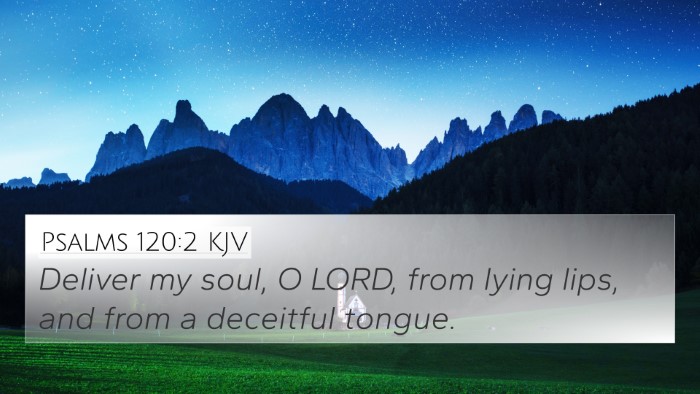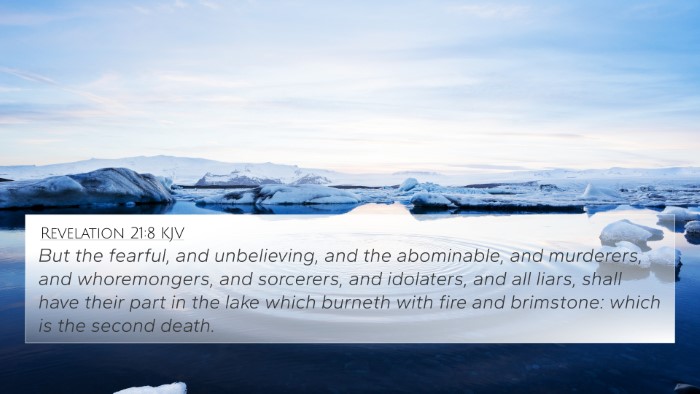Understanding Psalms 52:5
Psalms 52:5 states: "God shall likewise destroy thee for ever, he shall take thee away, and pluck thee out of thy dwelling place, and root thee out of the land of the living." This verse conveys a strong message regarding divine judgment and retribution for wickedness.
Commentary Insights
The collective insights from public domain commentaries illuminate various dimensions of this verse.
- Matthew Henry: Henry emphasizes the moral implications of this verse, suggesting that it serves as a warning against pride and malice. He notes that the fate of the wicked is imminent, suggesting that God’s judgment is inevitable for those who act against His commandments.
- Albert Barnes: Barnes interprets the verse as a reflection of God’s justice. He argues that this passage signifies not only punishment but also the ultimate removal of those who oppose God from the community of the faithful. For Barnes, the act of 'rooting out' symbolizes a complete and irreversible judgment.
- Adam Clarke: Clarke points out the metaphors used, noting that ‘plucking out’ conveys a violent and thorough destruction. He suggests that the language indicates a divine authority that no one can resist—highlighting God’s sovereignty over life and death.
Thematic Connections
This verse can also be analyzed in terms of its thematic connections with other scriptures. Here are some related verses that explore similar themes of judgment and divine sovereignty:
- Psalm 37:9: "For evildoers shall be cut off: but those that wait upon the Lord, they shall inherit the earth." - This verse reassures the faithful that ultimate justice will prevail.
- Proverbs 2:22: "But the wicked shall be cut off from the earth, and the transgressors shall be rooted out of it." - Similar in its depiction of God’s judgment against the wicked.
- Jeremiah 11:19: "But I was like a lamb or an ox that is brought to the slaughter; and I knew not that they had devised devices against me, saying, 'Let us destroy the tree with the fruit thereof, and let us cut him off from the land of the living.'" - Highlights the prophetic warning of destruction.
- Matthew 7:19: "Every tree that bringeth not forth good fruit is hewn down, and cast into the fire." - A New Testament reference echoing the fate of the unfruitful.
- Revelation 20:15: "And whosoever was not found written in the book of life was cast into the lake of fire." - Indicates the ultimate judgment and removal from God’s presence.
- Luke 13:3: "I tell you, Nay: but, except ye repent, ye shall all likewise perish." - Emphasizes the need for repentance to avoid judgment.
- Isaiah 22:14: "And it was revealed in mine ears by the Lord of hosts, Surely this iniquity shall not be purged from you till ye die, saith the Lord God of hosts." - Points to a specific judgment upon persistent iniquity.
Cross-Referencing Biblical Texts
When examining Psalms 52:5, we can utilize tools for Bible cross-referencing to draw deeper insights. These comparisons enhance our understanding of God’s nature and His dealings with humanity. The thematic connections manifest in various ways throughout scripture:
Tools for Bible Cross-Referencing
To navigate these connections, one can use:
- Bible concordances to find specific terms related to judgment and destruction.
- Bible reference resources that categorize verses based on themes such as sin and judgment.
- Cross-reference guides that provide systematic ways to engage with linked Biblical texts.
Cross-Referencing Bible Study Methods
Engaging with cross-references requires understanding the intent behind the verses. Here are methods to deepen your study:
- Identify relationships between Old and New Testament teachings to find continuity in themes.
- Use comparative studies of relevant passages that highlight God’s character and His justice.
- Explore detailed cross-references between the Gospels to see how different authors perceive judgment.
Conclusion
Psalms 52:5 serves as a profound reminder of the eternal principles of justice upheld by God. Through cross-referencing this verse with others, a deeper understanding of the consequences of wickedness and the promise of divine retribution emerges. Embrace the themes of accountability and God’s unwavering sovereignty as you explore these scriptural connections.
